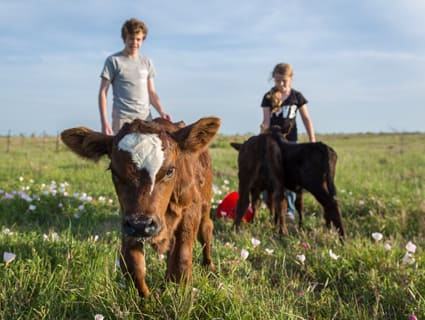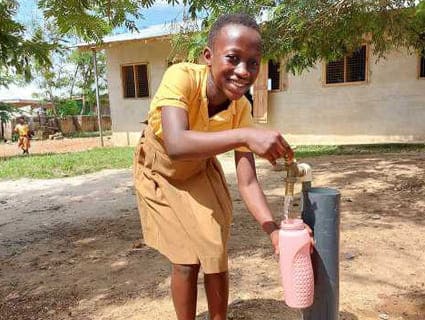Healthy soil, water and farmland: How we’re building sustainable supply chains
Read Time: 5 minutes
April 20, 2023
Tyler Bruns is no stranger to climate-friendly farming.
In fact, regenerative agriculture practices like using cover crops and foregoing tilling were simply the way he was taught to farm, he says.
“My grandpa has been farming with no-till and conservation practices since the 1970s,” says the fourth-generation farmer of Bruns Farms in Scott City, Missouri. “We try our best to implement no-till farming practices wherever we can — trying not to disturb the soil.”
Healthy soil is good for farmers and our planet. It can pull carbon from the atmosphere to combat climate change, improve water quality and increase drought resilience.
That is why Cargill is working to scale regenerative agriculture practices across our global supply chains. In fact, our goal is to support farmers in adopting regenerative agriculture practices on 10 million acres of North American farmland by 2030.
Cargill RegenConnect, for example, pays farmers like Tyler to adopt regenerative agriculture practices that improve soil health and benefit the environment. The program provides farmers a financial incentive for improved soil health, helps customers achieve their carbon reduction goals and helps our planet by decarbonizing the agriculture supply chain.
Ultimately, it is one of several ways Cargill is working to create more sustainable — and resilient — agriculture supply chains around the globe.
“As a key connector of the food system, we create meaningful impact at scale — for our customers and for our planet,” Chief Sustainability Officer Pilar Cruz says. ”We have the deep expertise, the connections across supply chains and the talent around the globe to deliver end-to-end sustainability solutions that no one else can.”
In the U.S., farmers from 15 states are eligible to participate. And it’s expanding overseas: The program is in year two in France and will be expanding to other European countries where Cargill has a significant footprint.
I think this is a good way to preserve this soil, keep our best dirt where it is in the fields … and keep this land profitable and productive for as long as we can.”
Water’s ripple effects in Indonesia
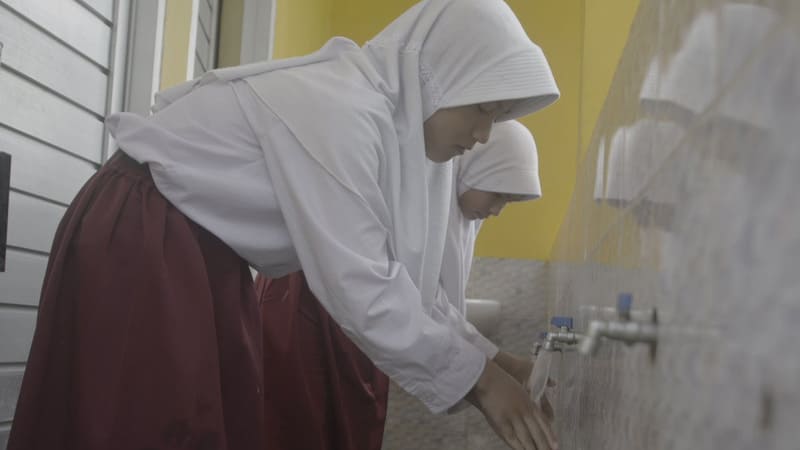 Millions of people in Indonesia lack access to safe, clean water. Cargill partners with CARE to help address water challenges like these.
Millions of people in Indonesia lack access to safe, clean water. Cargill partners with CARE to help address water challenges like these.
Accessing safe, clean water is a common challenge in Indonesia.
About 18 million Indonesians lack access to safe, clean water. Some turn to surface water, which can expose them to disease-causing pathogens. Lack of reliable access to safe water can lead to health impacts like diarrhea, malnutrition, and stunting in children.
Cargill is committed to helping address water challenges like these and included in our global water targets is our goal to enable improved access to safe drinking water and sanitation, reaching 500,000 people in priority communities by 2030. That is why we partnered with international development organization CARE to improve water access, sanitation, and hygiene (WASH) across schools in Indonesia’s Serang and Bone districts.
We have invested in this program since 2016, and in the last three-year phase we supported 10 schools to build new bathroom facilities, provided training on hygiene practices and nutrition, established community gardens to grow healthy foods, and partnered with local governments to replicate the approach across other schools. Today, nearly all students report regular handwashing, student absenteeism due to diarrhea has decreased three-fold and all the schools have functional toilets.
For people like Meny, the WASH program had ripple effects. Supervising sanitation infrastructure and maintenance was a role traditionally filled by men. Today, Meny is a member of the WASH and nutrition committee in Watang Palakka in Bone district, helping support access to clean water and sanitation facilities at a school and in her community.
“I am very happy to become a member of the sanitation committee,” Meny says. “It’s not only for the school. I can also use the knowledge I’ve gained at home and in my neighborhood.”
Making sustainable beef across North America
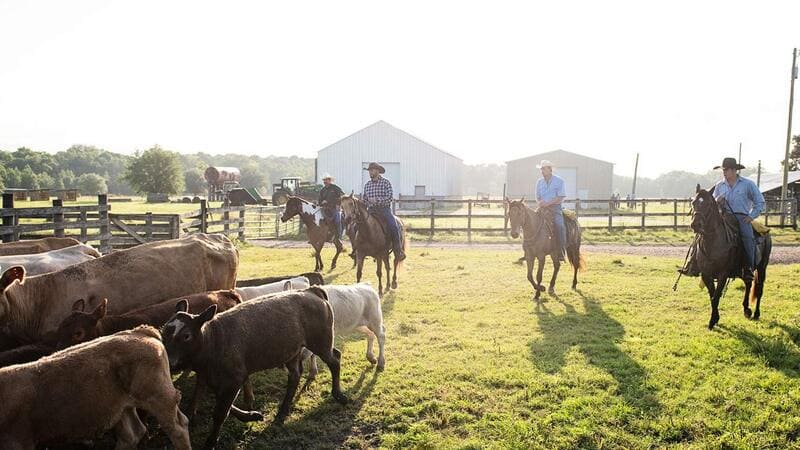 As part of Cargill’s broader sustainability efforts in Brazil, we are also advancing a series of projects to protect, manage and restore 100,000 hectares of altered land in the country in the next five years.
As part of Cargill’s broader sustainability efforts in Brazil, we are also advancing a series of projects to protect, manage and restore 100,000 hectares of altered land in the country in the next five years.
As the dust swirled around southern Nebraska in the dry spring of 2022, farmers in the area saw their soil dry up and rip out.
Todd Dzingle looked across his corn fields in southern Nebraska and saw a different sight.
“Our fields were green and the soil stayed where it was at,” says Todd, whose corn is used for cattle feed. “How do you put a price on that? To me, that’s priceless.”
Not to mention the decreased erosion, suppressed weeds and ever-increasing organic matter he’s seeing in his soil since switching to cover crops across his 1,400 acres, he says.
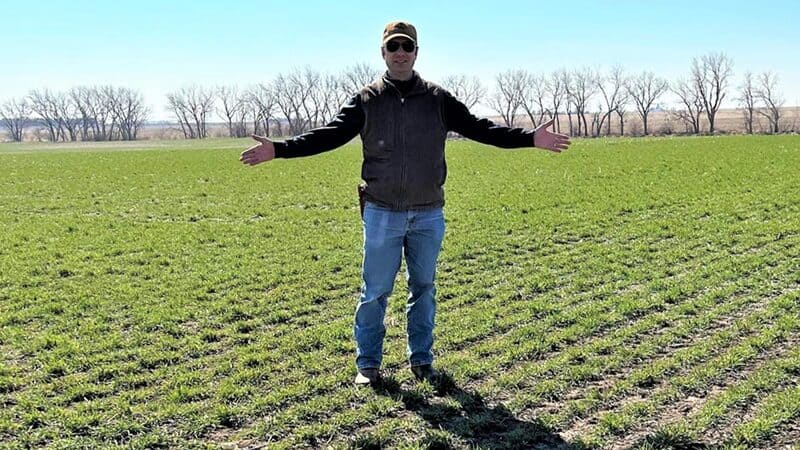 Todd Dzingle on his farmland in Nebraska, where he grows corn for cattle feed. Todd participates in Cargill’s BeefUp Sustainability initiative, which partners with farmers and ranchers to cut greenhouse gas emissions from the North American beef supply chain and help tackle climate change.
Todd Dzingle on his farmland in Nebraska, where he grows corn for cattle feed. Todd participates in Cargill’s BeefUp Sustainability initiative, which partners with farmers and ranchers to cut greenhouse gas emissions from the North American beef supply chain and help tackle climate change.
Todd wasn’t doing it alone. He had support — both technical and financial — from Cargill and its corporate partners as part of the BeefUp Sustainability initiative. The program partners with farmers and ranchers to cut greenhouse gas (GHG) emissions from Cargill’s North American beef supply chain and help tackle climate change.
Todd and the feed he produces are one piece of a much larger puzzle to make the North American beef industry more sustainable. Climate change is the top concern for U.S. and Canadian beef consumers, Cargill research shows. Beef production accounts for 3% of GHG emissions in the U.S.
That is why Cargill has partnered with Nestlé and the National Fish and Wildlife Foundation to help farmers adopt regenerative agriculture practices across 1.7 million acres over the next five years. The program, which will lead to $30 million in grant funding, is one of the largest corporate commitments to regenerative ranching in the U.S. to date.
The partnership will bring together private landowners and local conservation organizations to adopt voluntary land management practices across more than 15 U.S. states. In addition to sequestering carbon, these regenerative practices will improve water quality, restore wildlife habitats, and build healthier soils.
This partnership is activating the work needed in our supply chains to help create a regenerative, healthy food system. Working together as an industry leverages expertise and helps achieve the scale that is critical to accelerating the shift to regenerative farming. Taking action on regenerative agriculture means supporting farmers and ranchers to implement on-farm practices that help replenish the land, absorb carbon, and enhance the health of our environment.”
A ‘deposit’ in Brazil’s sustainability
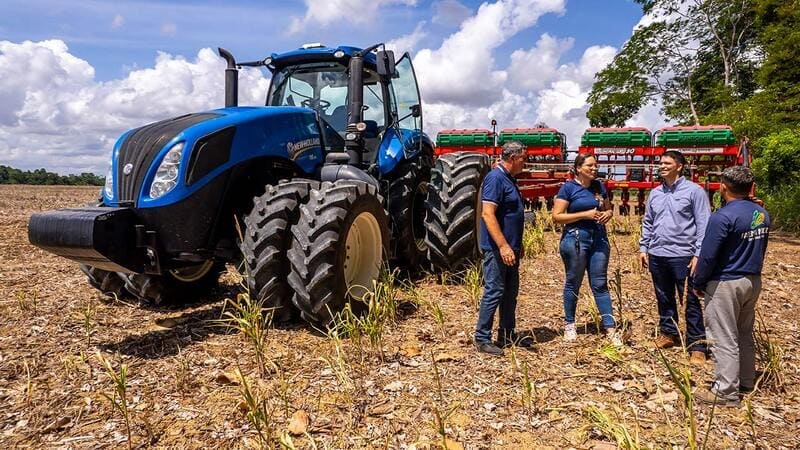 As part of Cargill’s broader sustainability efforts in Brazil, we are also advancing a series of projects to protect, manage and restore 100,000 hectares of altered land in the country in the next five years.
As part of Cargill’s broader sustainability efforts in Brazil, we are also advancing a series of projects to protect, manage and restore 100,000 hectares of altered land in the country in the next five years.
To support a more sustainable future in Brazil, Cargill recently announced a financial operation with Banco do Brasil that directs $240 million to support sustainable practices and decarbonizing the food system across Latin America.
Created in partnership with Banco do Brasil, one of the country’s largest financial institutions, the “ESG Time Deposit” is a type of funding which Banco do Brasil will make available to organizations or individuals advancing efforts in environmental stewardship, clean transportation, renewable energy, low carbon agriculture and improved living income — amongst other ESG themes. It’s in line with Cargill’s sustainability priorities and the United Nations’ Sustainable Development Goals.
Led by Cargill’s trade and capital markets group, the ESG Time Deposit aims to expand our ESG-related financing efforts in the country.
This partnership with Banco do Brasil is just one example of how Cargill is unlocking innovative financing solutions to scale sustainable impact — not only in our global supply chains, but across the broader industry.”
As part of Cargill’s broader sustainability efforts in Brazil, we are also advancing a series of projects to protect, manage and restore 100,000 hectares of altered land in the country in the next five years. Recent studies commissioned by Cargill have shown that these efforts have the potential to sequester at least 14 million tons of carbon dioxide in the next five years — the equivalent of removing 3 million cars from the streets for a year.
It is one way we are working to help mitigate the effects of climate change in Brazil’s soybean production — part of our broader ambition to curb food insecurity and build sustainable, resilient supply chains around the world.
Concludes Philippa, “It’s certainly an honor to get the chance to work across the company and do something that — if we do right — will make us a better company to work for and partner with.”
More stories
Sustainable beef: Bringing farmers, ranchers and customers together to fight climate change
Cargill’s BeefUp Sustainability initiative aims to cut beef emissions from our North American beef supply chain by 30% by 2030.
Ripple effects: Connecting farmers and communities with safe, clean water
Water access is a challenge for thousands of rural farmers and agricultural communities around the world
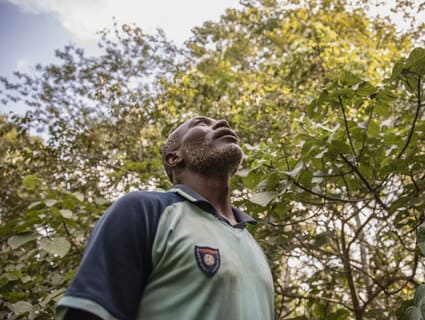
‘Trees are our common heritage’: How Cargill empowers farmers to protect and restore forests
From agroforestry in Côte d’Ivoire to landscape approaches in Malaysia, Cargill is addressing deforestation across the globe

